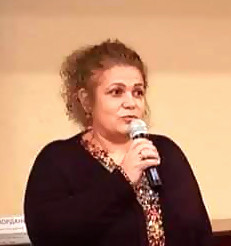What is the cost of freedom, and what was the road Bulgaria had to travel to its liberation from Ottoman domination in 1878? The answers to these questions can be found in the collection of articles in the world press in defence of Bulgarians after the 1876 April uprising. The atrocities committed in crushing the uprising are described by dozens of journalists, writers, researchers and public figures in over 3,000 articles carried by more than 200 newspapers.
On the eve of Bulgaria’s national day, 3 March, some of these testimonials are on display in an exhibition of documents “Voices in support of freedom”, arranged in the lobby of the regional administration in Dobrich, with the assistance of the Regional Museum of History.
 “The effect of what Bulgarians did during the April uprising shook Europe,” says Nadezhda Ivanova from the Regional Museum of history in Dobrich. “The sacrifice they made prompted free-thinking people to say that the people of Bulgaria did not deserve such a fate.”
“The effect of what Bulgarians did during the April uprising shook Europe,” says Nadezhda Ivanova from the Regional Museum of history in Dobrich. “The sacrifice they made prompted free-thinking people to say that the people of Bulgaria did not deserve such a fate.”
Here is what American journalist Januarius MacGahan wrote after the massacre of Batak, a document which is part of the collection of the museum in Dobrich:
“There were few tears in this universal mourning. It was dry, hard, and despairing. The fountain of tears had been dried up weeks before, but the tide of sorrow and misery was as great as ever, and had to find vent without their aid (…) Their mournful cries (of women and children) followed us about wherever we went. Such a sound as their united voices sent up to heaven I hope never to hear again.”

William Gladstone, Garibaldi, Turgenev, Victor Hugo, Jules Verne all raised a voice in defence of Bulgarians. Russian diplomat in Turkey, Prince Alexey Tsereteli who witnessed the events and the subsequent deep despair of Bulgarians wrote: “Salvation can only come from outside. Bulgarians are pinning all their hopes on the Russian Tsar and Orthodox Russia.”
Dostoevski too raised his voice.
“We know that his voice was likened to a bell, raising the alarm, ringing for everything happening here,” Mrs. Ivanova says. “Many prominent public figures as well as left-leaning people expressed their support for the Bulgarian people. The repercussions reached America and when journalists, military attaches and representatives from different countries came to Bulgaria, the scars of the April uprising were still there to be seen by all,” says Nadezhda Ivanova, and adds that these scars have not healed to this day.
“Researchers and historians, young people coming to the museum often debate whether, if we all had to rally under the banners for a nationwide revolution in our day, how many would be willing to lay down everything they value most? Perhaps our exhibition will give visitors food for thought. We often take our freedom for granted, but it was won at the cost of many lives. People left everything they had, everything precious to them behind to take a road leading to liberty for the common weal.”
The exposition at the regional administration in Dobrich is on until the end of April when we mark 143 years since the April uprising.
Photos: dobrich.government.bg
According to the 2021 census, almost 11% of the Bulgarian population, or about 639 000 people, identify themselves as Muslims, with the Turkish population alone accounting for 508 378 people. Most of the Muslim population lives in north-eastern Bulgaria..
From April 5 to 7, the town of Hisarya in the Plovdiv region will host the first festival of antiquity "Diocletianopolis - Crossroads of Time", the municipality announced. The aim of the festival is to show what life was like in ancient Diocletianopolis..
On 3 April 1860, during the solemn Easter service in the Bulgarian St Stephen's Church in Istanbul, Metropolitan Hilarion of Makariopolis intentionally did not mention the name of the Ecumenical Greek Patriarch . Instead of the name of Patriarch Cyril..

+359 2 9336 661
